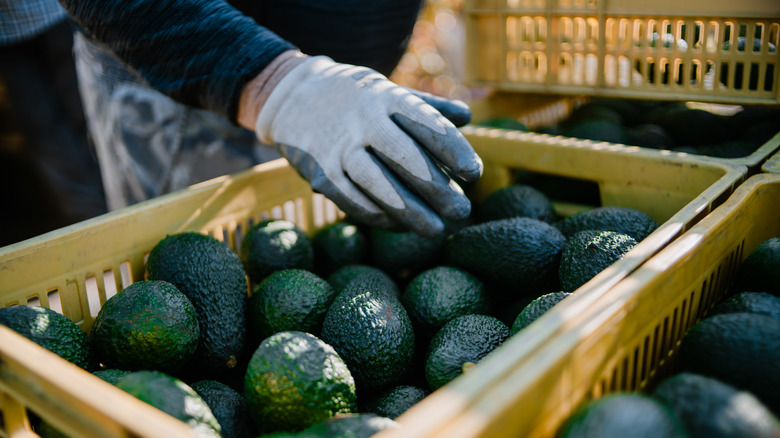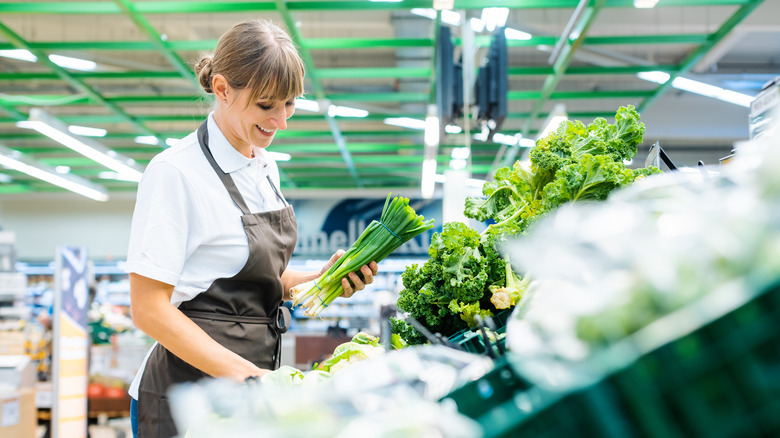How The US And Mexico Are Partnering To Improve Food Safety
A number of food recalls and people stricken by what they ate have made headlines recently, including an E. coli outbreak earlier this week possibly linked to romaine lettuce served on Wendy's sandwiches. As of Friday, at least 84 people have gotten sick with several people taken to the hospital, reports NBC News. Symptoms included vomiting, diarrhea, and nausea that could last 24 hours.
People getting violently ill from the food they eat is something the U.S. Food and Drug Administration (FDA) seeks to prevent through regulations and oversight as well as issuing food recalls when necessary. According to its website, part of the FDA's mission is to protect the country's food supply, and it does so partly by working with foreign entities. With some of the food eaten in the United States coming from abroad, this is especially important. For example, the FDA reports that 60% of the fresh produce imported into the United States comes from Mexico.
On August 25, the United States continued strengthening a partnership with Mexico to address food safety concerns. This meeting was just part of a more significant effort by the FDA to make sure America's food supply is safe, such as a new rule that will go into place on Nov. 7 requiring certain foods to have a detailed record of origin and transportation.
Agencies focus on prevention and response
To keep the relationship between the United States and Mexico strong and to keep people safe from food-borne illnesses, the FDA met with Mexico's Federal Commission for the Protection from Sanitary RisksExternal Link Disclaimer (COFEPRIS) and the National Service of Agro-Alimentary Health, Safety and QualityExternal Link Disclaimer (SENASICA) for the second annual Food Safety Partnership (FSP) Meeting on August 25. According to an FDA news release, the organizations discussed the progress that has already been made and looked ahead to how to address food safety in the future.
In particular, the FDA, SENASICA, and COFEPRIS discussed how a Salmonella outbreak in 2021 that stemmed from bulb onions grown in Chihuahua, Mexico was handled by each agency and shared information on their response plans should something like this happen again. According to the release, representatives from the agencies also talked about contributing to the Whole Genome Sequencing, which would help the United States and Mexico locate and respond to outbreaks efficiently. In addition, produce Safety Rule training with cilantro growers in Puebla and avocado growers in Jalisco, as well as bulb onion growers in Chihuahua were analyzed by all three of the agencies.
"Our food supply is global, and no single country can achieve its food safety goals alone. Our shared goal is to proactively use modern technologies, tools, and approaches to help protect the global food supply," said Frank Yiannas, the FDA's deputy commissioner for food policy and response, in the statement.

